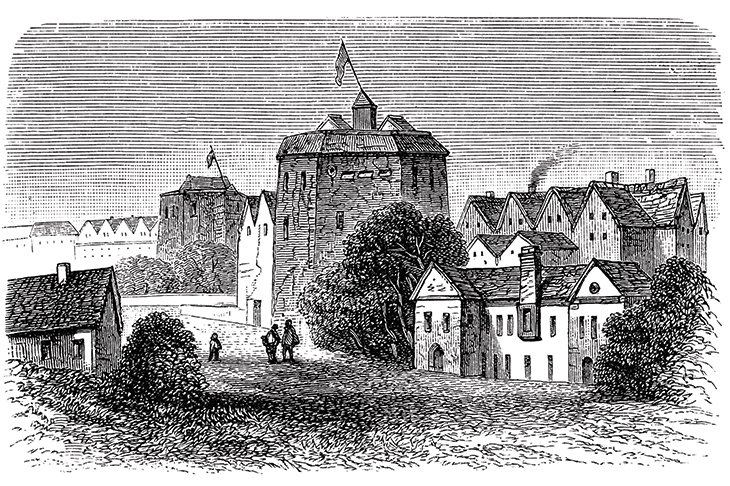IN ASSOCIATION WITH THE PRINCIPAL PARTNERS OF SHAKESPEARE’S GLOBE’S 2019 SUMMER SEASON

One of the things about Shakespeare that always makes you marvel is how insistently he speaks to the present moment — any present moment you choose. Academic literary critics wince when you start bandying around phrases like ‘eternal truths’, so let’s just say Shakespeare has a way of chiming with current events.
The Globe’s Richard II opens next month, the first in that chain of history plays that continues with Henry IV parts one and two and culminates with Henry V, all of which are part of the summer season. Here is a four-part conversation about (among other things) the meaning and burden of kingship, the value of courage, and the passing of time. It’s also — which makes it especially apt as we prepare for Brexit — a thoroughgoing discussion about the meaning of English (it’s a bit early to say British) nationhood.
Richard II contains, in John of Gaunt’s deathbed speech, one of the most fondly quoted encapsulations of what our island identity means ever written. The bit most of us remember is the flowery part — ‘This royal throne of kings, this scepter’d isle, […] This blessed plot, this earth, this realm, this England.’
In context, though, it’s more than a sentimental speech. Its central point is the virtue of being an island: ‘This precious stone set in the silver sea,/ Which serves it in the office of a wall,/ Or as a moat defensive to a house.’ John of Gaunt precedes it by railing against how foolish young people are in thrall to continental fashions from ‘proud Italy’, and ends by lamenting that this ‘dear’ country is ‘leased out’ like a ‘tenement or pelting farm’: ‘With inky blots and rotten parchment bonds/ That England, that was wont to conquer others,/ Hath made a shameful conquest of itself.’
Did Shakespeare foresee the Maastricht Treaty and the Acquis Communautaire in those inky blots? I’d hesitate to oversimplify this many-splendoured writer: he has as many opinions as he has characters. But there’s no question John of Gaunt supplies some ammo for Leave.
IN ASSOCIATION WITH THE PRINCIPAL PARTNERS OF SHAKESPEARE’S GLOBE’S 2019 SUMMER SEASON








Comments